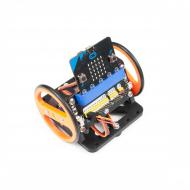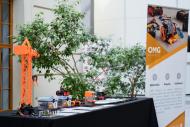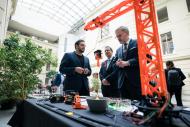Ideas and discoveries
A student from BUT founds OMG Robotics and changes the way computer science is taught in Czech schools
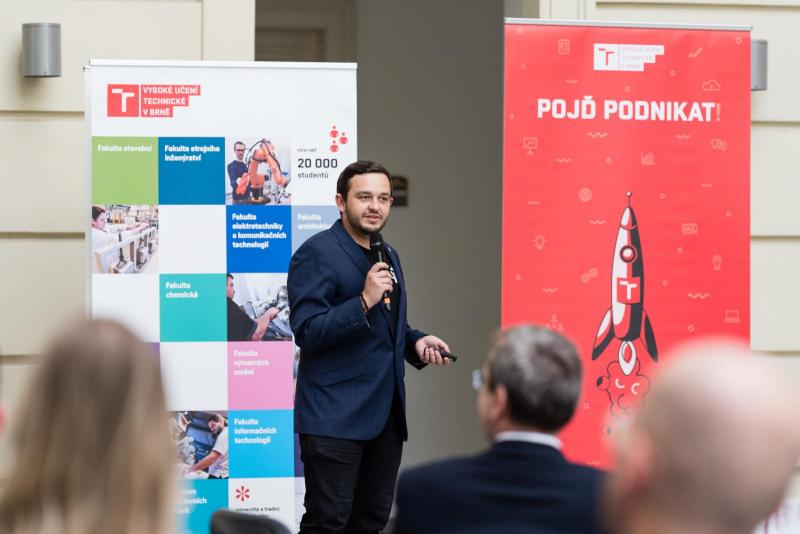
This year, the Student Entrepreneurship Award of BUT (Brno University of Technology) went to Pavel Šafl, a student of the FEEC (Faculty of Electrical Engineering and Communication). He found that primary schools in the Czech Republic often struggle to integrate informatics into their curriculum to meet the digital competences set by the Ministry of Education. And he decided to help them. He founded OMG Robotics and now he supplies schools with, for example, special kits that children use to learn programming, but can also be used in other subjects. Together with his colleagues, he also trains teachers and offers complete manuals or exercise books for the kits.
Pavel Šafl, a doctoral student at the FEEC BUT, founded OMG Robotics only last spring. Although most startups are just starting to gain their first experience and customers after a year, Šafl's business is already going full speed. There is a growing demand for his offer among schools, and he has more than enough ideas on where to develop the project further.
But it is no coincidence that he discovered a problem to which he responded with an appropriate offer. Before he started his own business, he had thoroughly mapped the terrain. “The whole project is based on the fact that I was the manager of an international Interreg project and I was also a lecturer in the EduSTEM project. Within both of them I went around hundreds of schools teaching them how to teach computer science. I have noticed that schools often have a problem with the integration of informatics and that they do not meet the Ministry's requirements for digital competences. During the first project about two or three years ago, I started thinking about how I could help them,” says Šafl.
He also had experience from the Lužánky Leisure Time Centre, where he worked on the creation of a robotics club. This led him to the idea to include robotics in school education. “I came to the conclusion that the most convenient and cheapest way to meet the requirements is by using micro:bits. Micro:bits are such small programmable units. Children program in a simple block diagram. It's a great platform from Microsoft,” says Pavel Šafl.
AVAILABLE ELECTRONICS WERE NOT SUITABLE FOR CHILDREN. SO HE PRODUCES HIS OWN
The problem is that while the software is available, many companies do not produce the necessary electronics. “That means they don't make it so that it can be used for further teaching. For example, electronics sold by e-shops in the Czech Republic on the micro:bit platform can only be used for robotic vehicles. This is a pity, because micro:bit has much more potential and can be used for various measurements and monitoring of different phenomena,” adds Šafl. He continuously tested the available hardware with children in clubs and in the classroom. “Gradually I found usable electronics, but they were not suitable for children. It was aimed more at DIY guys and people who know what they are doing. But with children, it's often one ear in and one ear out. You tell them five times that the red wire is plus and the blue wire is minus, but they still plug it in the other way around. And then the electronics go away quickly,” he adds with a smile.
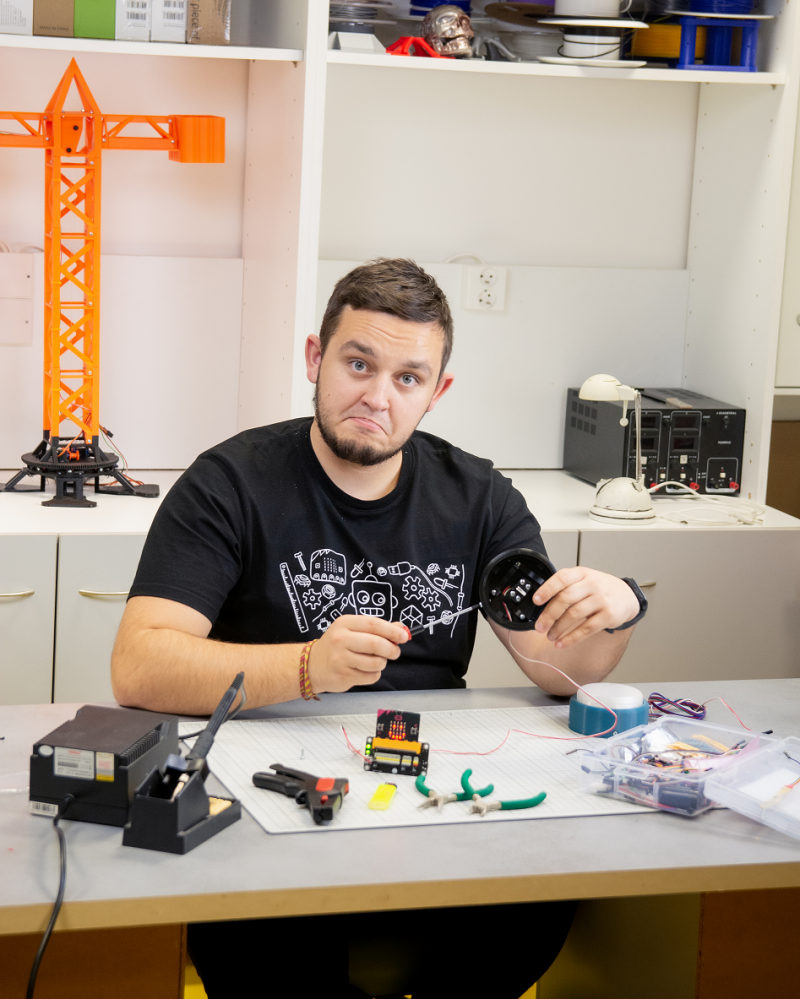
Teachers who are unsure how to incorporate OMG Robotics' tools into their lessons can also arrange so-called project days. “In this case, we conduct one day of classes for them and show them how to learn with such equipment,” Šafl adds.
SCHOOLS CAN PRINT THE PARTS THEMSELVES
In addition, he also continued the already running project of Prusa Research, which lends 3D printers to schools for a year for free and after a year evaluates whether the school has worked on the 3D printer satisfactorily and donates the printer to them. “I wanted to continue with it, so I started to prepare materials for 3D printing. These documents are especially for robotics support. The school is able to make the individual components itself. Within the educational programmes, production should fall to the eighth and ninth year classes in work-based activities. Subsequently, it can be used in the entire spectrum of teaching and the school does not have to invest ten or a hundred thousand crowns in robotic kits,” explains Pavel Šafl.
He cooperates on the materials for teachers with colleagues from FEEC BUT, for example with the Faculty of Education of Masaryk University in Brno. “They write background papers for me on subjects I don't understand,” he confirms. In addition, some of the material is also produced as part of diploma theses.
HE ENTERED THE COMPETITION WITH NOTHING MORE THAN AN IDEA. AND STILL HE WON
Pavel Šafl says that his business grew by itself, just as he wanted to, and the competition was just a side show where he presented a little something from time to time. The last year of the competition coincided with the period when he decided to found OMG Robotics. “It was good because when I applied, I basically just had an idea. During the year, I worked on developing the company while going through the various rounds of the competition. I received feedback that I could immediately take into account in the project,” he adds. In addition, he appreciates the fact that he met many interesting people through the competition. He then considers the victory as a nice bonus. At present, OMG Robotics is a team of about ten people and the plan for the next period is not only to reach more Czech schools but also to expand abroad.
(zeh)
Award-winning Volteek project offers a modular battery management system developed through a student formula
Summer research programme at BUT inspired American students to pursue PhD
Greater efficiency and completely new applications. Experts from FEEC BUT also collaborate on satellites for very low orbit
Since he was a child, he dreamed of space. Now he wants to put the first student satellite into orbit
Spacetime navigation: doctoral research from FEEC BUT introduces an innovative approach to spatial function estimation
